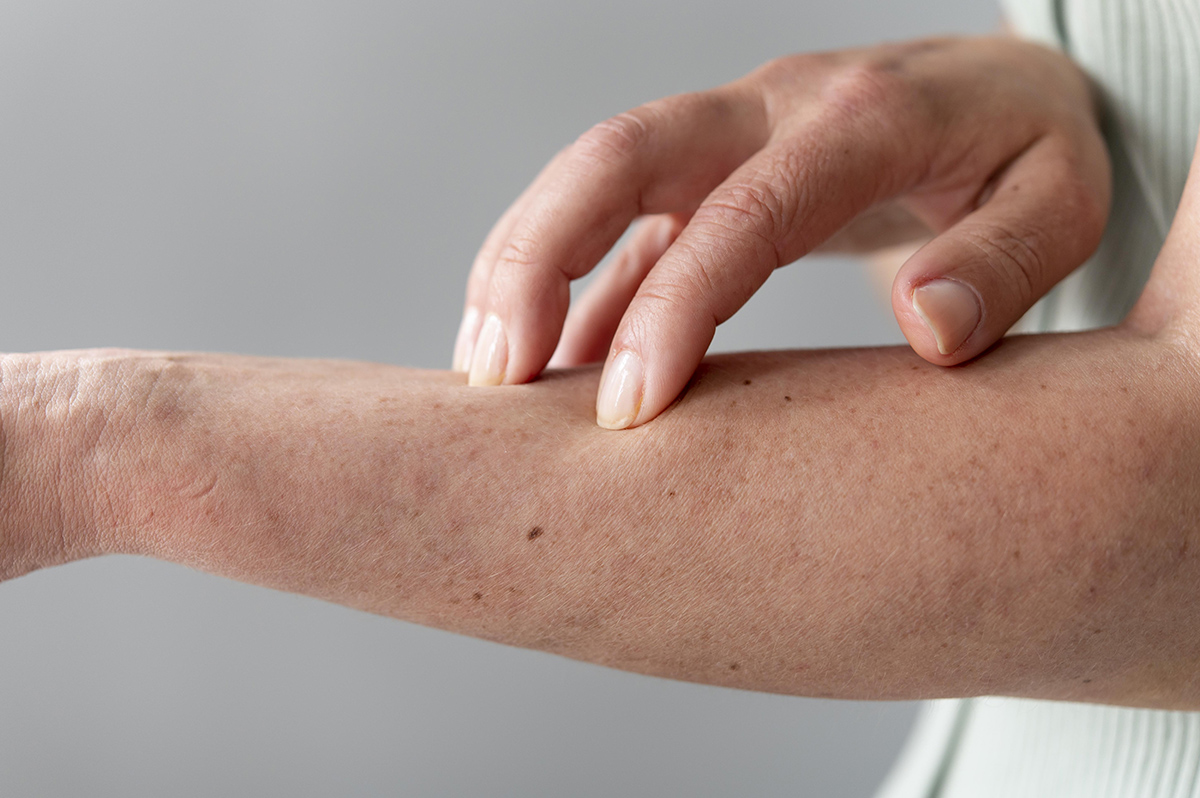If you suffer from eczema, you would know that every day can be eczema season. Those red, itchy, and angry bumps can hit you hard, no matter the trigger. In fact, there’s no known exact cause, although genes are thought to play a part in its development.
Is there a way to stop them from wrecking your skin?
Yes, there are several ways, but let’s look at the typical causes before diving right in:
What Causes Eczema to Flare Up?
Eczema triggers may vary from person to person, and the symptoms may not always appear immediately.
Some common symptoms are:
Pet dander
Sweat
Fabrics
Redness
Hot/cold/dry weather
Harsh soaps
Stress
Irritants
Dry skin
What Are Some Ways to Prevent Eczema From Acting Up?
Steroid Cream
Light Therapy
Oral Antihistamines
Steroid Shots
Oral Corticosteroids
Tips to Prevent Eczema Flare-Ups
There are specific actions you may take to avoid your eczema flare-ups. They include:
Stay Moisturised
It is important to keep your skin hydrated with cream. For the best results, you should apply the cream after bathing when your skin is at its driest, and frequently throughout the day.
Although lotions have higher water content and are more comfortable for application, it is less moisture-retaining as compared to creams. You should also avoid using hot water when bathing, and opt for a lukewarm temperature instead to hydrate your skin.
Pick non-scented and mild soap cleansers with no harsh irritants or fragrances. Your showers should also stay within 15 minutes. If you are unsure, you can check with your house doctor whether your product is suitable.
Identify and Avoid Irritants
It may be ideal to try and identify your specific triggers or irritants so that you can steer away from them. Trigger factors include overheating your skin, sweat, a dry environment, dust, stress, anxiety, and more.
Chemical exposure and materials may also trigger an eczema reaction. If you suspect a particular trigger, you should check with your doctor in Singapore to confirm it.
Not everyone suffers from the same symptoms, so avoid assuming that what triggers someone else is what triggers your condition as well.
Use Medications
Most doctors will prescribe topical steroids to help manage an eczema flare-up. You should not apply the steroids for longer than needed because it thins out your skin. Over time, it may cause several side effects.
You should also apply a thin layer each time instead of slapping on a thick layer.4
Ask Your House Doctor if You Are Unsure
Remember to always check back with your house doctor if you are uncertain about any aspect of your eczema, its triggers, or the medications you want to use. You can easily get help via a telemedicine consultation wherever you are and have your medication delivered quickly to you for fast relief!
